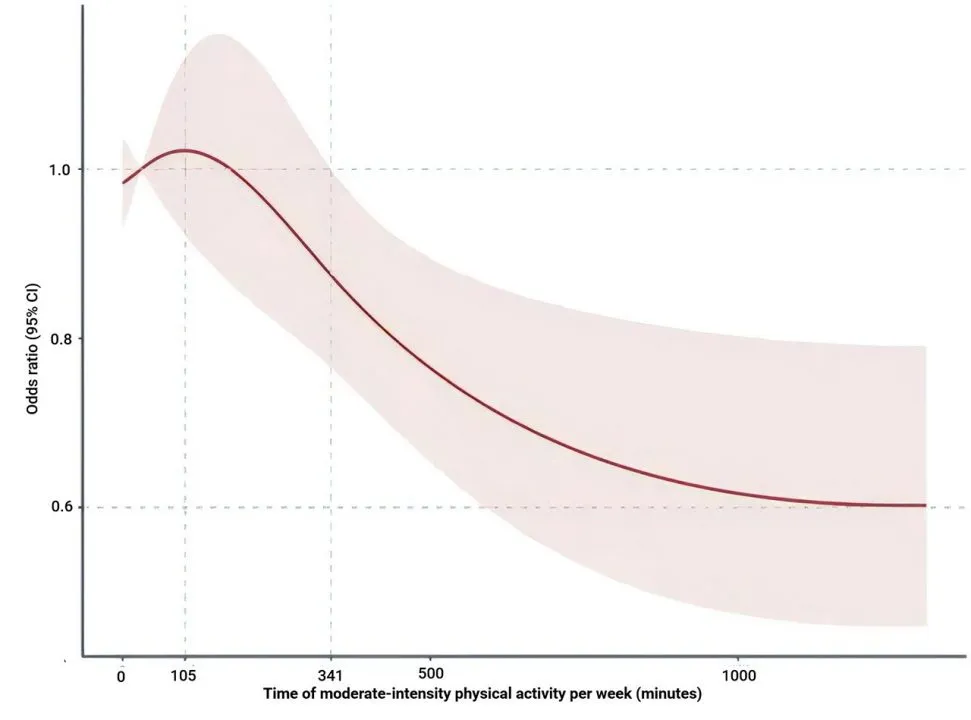— Researched and written by Dr. Sandip Roy.
The connection between sleep issues and Attention Deficit Hyperactivity Disorder (ADHD) is complex. Sleep problems can occur alongside ADHD and also result from it.
Adults with ADHD often face these sleep problems:
- Longer time to fall asleep: The hyperactive part of ADHD makes them struggle to unwind and relax, with racing thoughts making it hard to transition from wakefulness to sleep. The impulsivity part of ADHD can lead them to do stimulating things near bedtime that keep them up late.
- Waking up later: Their natural circadian rhythm is often shifted late, so they have a delayed sleep phase, which makes them sleep later than conventional bedtime as well as wake up later.
- Disturbed sleep: Even after falling asleep, they often have restless sleep, and may keep tossing and turning, or having trouble staying asleep.
Sadly, their sleep problems may get worse when they are on ADHD medications (which are mostly stimulants).
The good news is that researchers recently discovered that a single strategy can greatly enhance their sleep quality: regular exercise.
How To Sleep Better When You Take ADHD Medicine
A team of Chinese and American researchers reported that physical activity can majorly improve sleep in adults with ADHD, particularly those on stimulant medications.
The findings of the study by Zhu, Liu, & Kuang (2023) are encouraging:
- Physical Activity (PA) Reduced Sleep Disturbances: Moderate-to-vigorous physical activity noticeably improved sleep in adults with ADHD on stimulant medications. Specifically, physical activity was seen to shorten the time it takes to fall asleep, increase total sleep time, and improve overall sleep quality.
- 150 Minutes Weekly Guideline: Those who did 150 minutes of physical activity per week saw a significantly lower chance of complaining of trouble sleeping.
- Gender-Specific Benefits: The positive impact of physical activity on sleep appeared to be more pronounced in men than in women, suggesting physiological and possibly hormonal differences between genders.
- Dose-Response Relationship: A clear dose-response relationship emerged — more physical activity led to fewer sleep troubles.
The following graph shows the relationship between the amount of moderate-intensity physical activity per week and the likelihood of experiencing trouble sleeping in adults with Attention Deficit Hyperactivity Disorder (ADHD) on stimulant medications:

Relief from sleep issues began after 105 minutes of weekly physical activity, with a notable difference observed after 341 minutes, leveling off at 1,250 minutes.

[Did you know about The Mystical Rejection Sensitivity Dysphoria In ADHD/Autism?]
How To Optimize Your Exercise For Best Sleep Results
Since physical activity has been proven to help you fall asleep faster, sleep longer, and have better sleep quality, how should you exercise if you’re an adult with ADHD?
Choose an exercise plan guided by these findings:
- Most beneficial activities: Moderate-to-vigorous aerobic exercises were found to be highly effective. The authors asked, “Do you engage in any moderate-intensity sports, fitness, or recreational activities such as brisk walking, bicycling, swimming, or volleyball for at least 10 min continuously during a typical week?”
- Tailor exercise to your ADHD type: Select the type of exercise based on your specific ADHD symptoms present. If you’re the one with more hyperactivity, vigorous activities may benefit you more. If you’re the one with more inattentive symptoms (that is, you get distracted easily), moderate-intensity exercises may suit you more.
- Check how exercise affects your sleep: Monitor how your exercise routine affects your sleep quality. Keeping track helps make necessary adjustments. If a certain type of exercise isn’t helping you sleep better, consider trying a different type, intensity, or duration.
- Regular Exercise Helps: The authors write, “As such, it is crucial to establish a consistent physical activity regimen and allocate adequate time for the body to acclimate to the novel physical demands.” So, maintaining a consistent amount of physical activity is key. They defined a person as active only if they completed 150 min of moderate-to-vigorous intensity physical activity during a typical week.
- Personalize your exercise plan: Pick an exercise plan that suits your preferences and abilities. Adjust the intensity and duration of exercises based on your fitness level and other health concerns.
- Exercise Is a Good Shield: The study suggests that physical activity can act as a protective factor against sleep disturbances in adults with ADHD, particularly those using stimulant medications. They write, “Our results suggest that greater amounts of weekly moderate-to-vigorous activity result in a lower risk of trouble sleeping, indicating that maintaining a certain amount of PA is a protective factor to sleep for adult ADHD with stimulant medication use.”
Actionable tip: Try to get 150 minutes of moderate-to-vigorous exercise per week if you’re an adult with ADHD on medications.
How To Integrate Exercise Into Daily Life
Here’s how you can make exercise a regular part of your ADHD life:
- Set Achievable Goals: Set goals that you can reach, not ones too high or too fast. Start with shorter sessions, like 20 minutes of brisk walking, and gradually work your way up to 150 minutes per week. Start with 3 times a week, then gradually increase to 5 days a week, as you build stamina.
- Make A Plan: Have a clear exercise schedule — this helps build a habit. Set times to exercise, like mornings 6 to 7 AM before work, or evenings 7 to 8 PM after dinner. Use a weekly calendar to mark your workouts — the type, duration, and intensity. Treat these as non-negotiable commitments.
- Pick Activities You Like: Choose exercises that you enjoy. Whether it’s dancing, swimming, or playing a sport, finding something you love increases the chances of sticking with it.
- Mix Exercise into Your Day: Find simple ways to be more active. Walk or bike to nearby places, use the stairs instead of elevators, or pick up a hobby like Zumba, dancing, or shuffling, that makes you learn new ways to move your body.
- Get Support: Join a fitness group or involve loved ones to stay motivated and accountable in your exercise journey. Their encouragement, even if it may sometimes seem like nagging, and camaraderie can make exercising more enjoyable and sustainable.
- Consider Your Medication: Try to work out during the peak hours of your ADHD medication. You are more likely to keep up your schedule if you exercise when feeling energy-boosted.
Peak hours of some common ADHD medications:
- Short-Acting Medications:
- Mixed amphetamine salts (Adderall, Evekeo) typically start working in about 30 to 45 minutes and last for 3 to 6 hours.
- Dextroamphetamine (Dexedrine, ProCentra) typically lasts around 3 to 6 hours, while Methylphenidates (Focalin) immediate release lasts around 3 to 4 hours.
- Long-Acting Medications:
- Amphetamines (Adderall XR) last 8–12 hours, Dextroamphetamine (Dexedrine) for around 6–8 hours, and Lisdexamfetamine (Vyvanse) for 10–12 hours.
- Methylphenidate extended-release (Concerta) typically lasts 8–12 hours.
6 More Practical Tips To Improve Sleep in ADHD
Other than exercise, these practical strategies can enhance sleep in ADHD:
- Good Sleep Hygiene: Stick to a consistent bedtime and wake-up schedule. Keep your bedroom dark, quiet, and cool, and use your bed only for sleep.
- Pre-Sleep Routine: Develop a calming routine before bed, like reading or taking a warm bath, to signal your body it’s time to wind down.
- Limiting Screen Time Before Bed: Reduce exposure to screens at least an hour before bedtime. The blue light from devices can interfere with your natural sleep cycle.
- Dietary Adjustments: Cut down on caffeine and sugar, especially in the evening. Consider a balanced diet that supports better sleep, like foods rich in magnesium or melatonin.
- Relaxation Techniques: Practice relaxation methods like deep breathing, meditation, or gentle yoga to calm your mind before bed.
- Cognitive-Behavioral Therapy (CBT): CBT can help you manage thoughts and behaviors that disrupt sleep. It’s especially useful for tackling insomnia.
Why ADHD People Have Sleep Issues
Studies have found a strong link between ADHD and sleep problems like insomnia. In fact, up to 85% of adults with ADHD have sleep disturbances (Fadeuilhe & Daigre, 2021).
5 reasons that cause ADHD people to have sleep troubles:
- Behavioral Challenges: ADHD symptoms like restlessness, impulsivity, and time blindness can directly mess with sleep. It’s tough to wind down when your mind’s racing.
- Body Differences: People with ADHD might have body quirks like restlessness and hyperactivity, heightened sensitivity to environmental stimuli, and delayed sleep phase syndrome. They often take excessive caffeine or daytime naps to manage their ADHD, which can throw off the body’s internal clock.
- Body Clock Confusion: ADHD can disrupt one’s body clock, making it a struggle to fall asleep when everyone else has gone to sleep, and waking up sleepy instead of refreshed in the morning.
- Routine Woes: It is quite tough to keep a consistent bedtime routine for an ADHD person. They find it hard to stick to a schedule, get easily distracted, and struggle with self-control.
- Medication Effects: Some ADHD meds can affect sleep. If one takes them too late, they might find themselves wide awake when lying down to sleep.
Adults with ADHD face a dual challenge when it comes to sleep: sleep disturbances natural to their condition and stimulant medications given to treat their condition.
Final Words
Two takeaway messages if you’re an adult on ADHD medications:
- Prioritize sleep, as good sleep can keep your ADHD symptoms under control.
- Exercise regularly for 150 minutes/week (moderate to vigorous physical activity).
Did you know that not exercising is like taking a depressant? Exercise releases endorphins, and four other feel-good chemicals, that increase your overall happiness and make you more resilient to stresses. See The Science of Exercise & Happiness.
√ Please share it with someone if you found this helpful.
√ Also Read:
- The Dark Side of ADHD – Love-Bombing And Person-Fixation
- How Emotional Permanence Affects ADHD Adults
- How to Stop Self-Sabotage if You Have ADHD?
- How to Take Control of Your Adult ADHD
• Our Story!